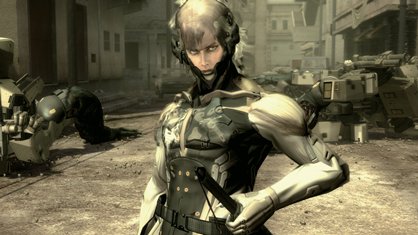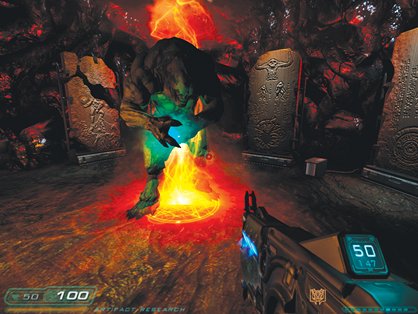The game developers who've NEVER made a bad game
Unbelievable but true; some studios CAN score a flawless victory
Selected notable releases: Metal Gear series, Boktai: The Sun is in Your Hand, Lunar Knights
Much like Harmonix, Kojima Productions' strength comes as much from a left-field exploration of the medium as the actual content of its games. Where most devs are content to experiment only within the confines of the internal workings of their title, Kojima sees everything as fair game, starting at game design and emanating outwards to encompass every experience in the player's real-world living room. Holistic interactive dicking around, if you will.

Whether it's the infamous Psycho Mantis fight, the Russian doll meta of MGS2's ending, changing a console's clock settings to insta-kill a boss through old age, or 'simply' using a real-world sun sensor to charge up an in-game weapon, KP's insistence on manipulating the very ways players interact with games has always made its output exciting and damnably enigmatic, far beyond what it achieves via its already impressive game design.

Selected notable releases: Commander Keen series, Wolfenstein series, Doom series, Quake series
People and technology, blended in unison. That's what makes id such a legendary developer (though in a fun way, rather than a Shinya Tsukamoto way, naturally). In co-founder and current Technical Director John Carmack, id of course has quite possibly the most scarily talented programmer in the industry, but it is the way in which id wraps Carmack's consistently groundbreaking tech around a design philosophy of pure fun which gives the dev its edge. Where fledgling studios often feel the need to impress with all manner of bells and whistles, id's old school experience and well-earned confidence allows it to boil game design down to a purer, more immediate, moment-to-moment experience, carried off with mind-numbing technical flair.

Hand-in-hand with id's appreciation of the player experience goes its appreciation of its own people. Employing heavily from the modding community (a community arguably kickstarted by Carmack's manifesto of making each game heavily adaptable by the player), id selectively hires designers who have already demonstrated personal passion and flair, often unpaid, to ensure a positive and intimate working environment. As Creative Director Tim Willits recently told us, "We would rather have people who fit in culturally than just brilliant dudes. But luckily we have brilliant dudes who fit in culturally." And his thoughts on the fundamental difference between id and its competitors? He confirms:
"It's the people. John Carmack plus the rest of us have been here a long time, and we have a very high standard of what we believe is fun. We've been small enough and successful enough to stick to that standard, and as we grow these teams, we try to keep a small group culture. Because really, the culture and the people at the top dictate the whole organisation."
Sign up to the GamesRadar+ Newsletter
Weekly digests, tales from the communities you love, and more

Selected notable releases: Baldur's Gate, Neverwinter Nights, Star Wars: Knights of the Old Republic, Mass Effect
Like several studios on this list, BioWare typifies the success a dev can earn through knowing what it's good at and continually honing its skills in that direction. In BioWare's case, that direction means deeply engaging narrative and accessible depth. Which is pretty fortunate when you consider that it's primarily an RPG house. Sensible choice, lads.

From the early days of Baldur's Gate, through to Knights of the Old Republic, Mass Effect and Dragon Age, BioWare's manifesto has seemed to be to create RPGs which cater to tastes far beyond the traditional Hawkwind-loving, beardy western RPG fan cliche. Happy to disguise its role-playing expertise under the guise of third-person shooter, movie license or even Sonic game, the studio always brings depth of both gameplay and story, but most importantly does it without dumbing things down or over-facing the player.
The company's games are famed for freedom of narrative choice, but the choice of gameplay approach is also key. In a scene in which mainstream RPG tastes are still dominated by the rigid and repeated mechanics of Final Fantasy, BioWare offers consistently fresh alternatives which can engage the non-nerdy player in new ways every time they play. All that, and they made Amy Rose remarkably non-punchable. That borders on genius.

Selected notable releases: Fire Emblem series, Famicom/Advance Wars series, Paper Mario series, WarioWare series, Panel De Pon
Nintendo without Intelligent Systems would be a very different company indeed. Created when members of Ninty's legendary R&D1 team splintered off to form its own separate internal studio, it has produced some of the coolest and best loved first-party Nintendo games for generations. Perhaps it's down to that slightly outsider inception, but its success definitely carries a theme of the off-kilter reimagining and expansion of Ninty's tried and tested core output throughout.

Where the Mario universe traditionally gave us platformers, Intelligent Systems gave us the self-referential comedy genius of Paper Mario and the compulsive lunacy of WarioWare. Where Nintendo's RPG output had traditionally been the light action-adventure of The Legend of Zelda, IS gave us the more tactically involved Fire Emblem and Famicom/Advance Wars. Hell, these guys even bucked the trend of all Super Scope games being a pile of old stench-crust by creating the really rather fun Battle Clash and its sequel, and when the SNES mouse turned up, it was they who put together the pulsating bundle of creative imagination that is Mario Paint. All things considered, they're about as indie-rebel as Nintendo is ever likely to get.


We find out which publisher wins in the battle of the studios

They made classics. And they made crap. This... is the crap



